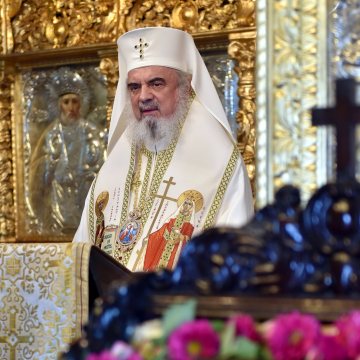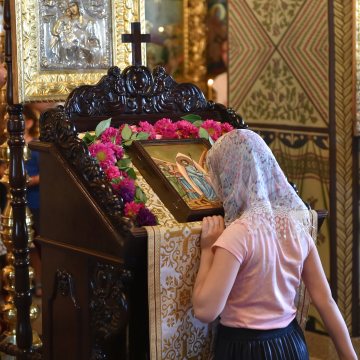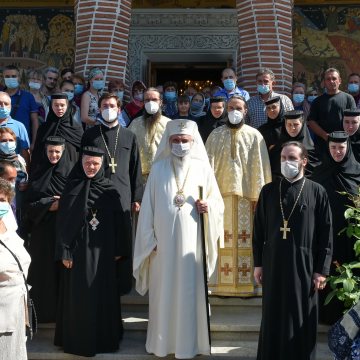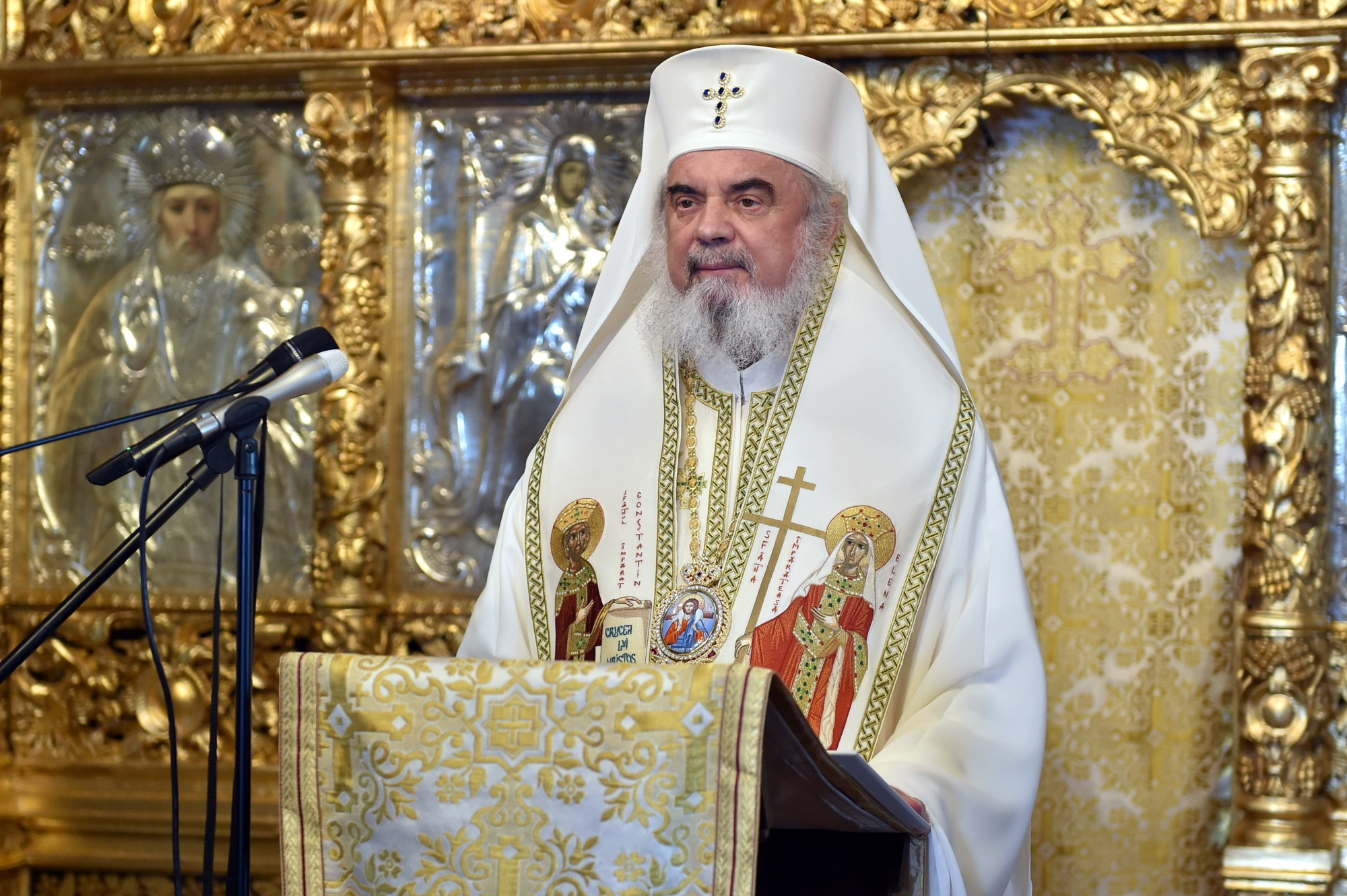
His Beatitude Patriarch Daniel Sunday stressed that the presence of the cross everywhere ‘reminds of God’s love for us.’
‘Inside the church, the cross is located first in the altar, because
it is Christ’s altar of sacrifice. Then we find it on top of the
iconostasis. On top of the church, one or several crosses are placed,
because the church is built in the shape of a ship, and on the mast
above the flag, the distinctive sign, is the Holy Cross, which remains
unmoved by the wind, in the storm.’
‘The Holy Cross is on the church, inside the church, on the priests’
vestments, on the holy vessels, the church banners, everywhere it tells
us about the love of Christ,’ Patriarch Daniel said during his visit at
Samurcasesti Monastery.
‘The faithful have a cross on their house’s front door or at the gate
of the road; it is met at the crossroads because Christ said I am the
way, the truth, and the life (John 14: 6), He accompanies us all our
lives.’‘The cross is placed near the springs or above the roof of a well to remember Christ Who said that whoever drinks the water I give them will never thirst (John 4:14).’
‘The cross is placed at the graves of our loved ones because in the Orthodox Creed it is I look for the resurrection of the dead and the life of the world to come. Amen.”
‘The sign of the cross is the sign of Christ’s love stronger than death, and that is why we love our dear ones who have passed away to the Lord, so that prayer for them is stronger than death. It goes beyond the grave and touches their souls who are in heaven in the light and love of the Most Holy Trinity,’ the Patriarch of Romania said September 13.
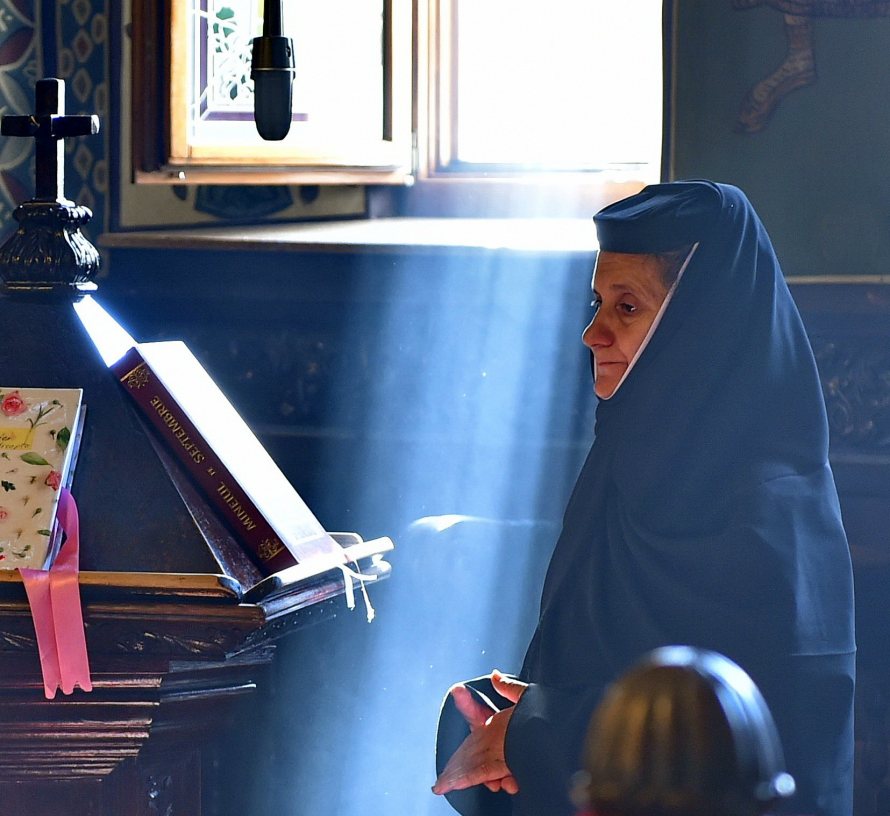
During his homily on Sunday before the Exaltation of the Holy Cross,
the Patriarch spoke about the importance of making the sign of the
cross. ‘We feel the power when we mark ourselves with the sign of the
Holy Cross.’
‘When we make the sign of the Holy Cross, we glorify the love of the
Father, the Son and the Holy Spirit. We glorify the sign of love, which
is stronger than sin and death, than hatred and violence, and we show
that the humble love of Christ is life-giving.’
The veneration of the Holy Cross does not imply the veneration of the
material from which it is made, Patriarch Daniel emphasized.
“When we kiss the Holy Cross, we do not venerate the matter of the
Holy Cross, but the sign of the Holy Cross that represents Christ. When
we venerate it we do not honour metal or wood, but Christ crucified on
the Cross. The veneration of the cross is the veneration of Christ who
was crucified on the cross and then rose on the third day.’
‘Therefore, on Easter night when the priest joins the Easter candle
next to the cross, he raises the cross and the candle in front of
everyone and says Christ is risen!, and the faithful answer He is risen
indeed!’
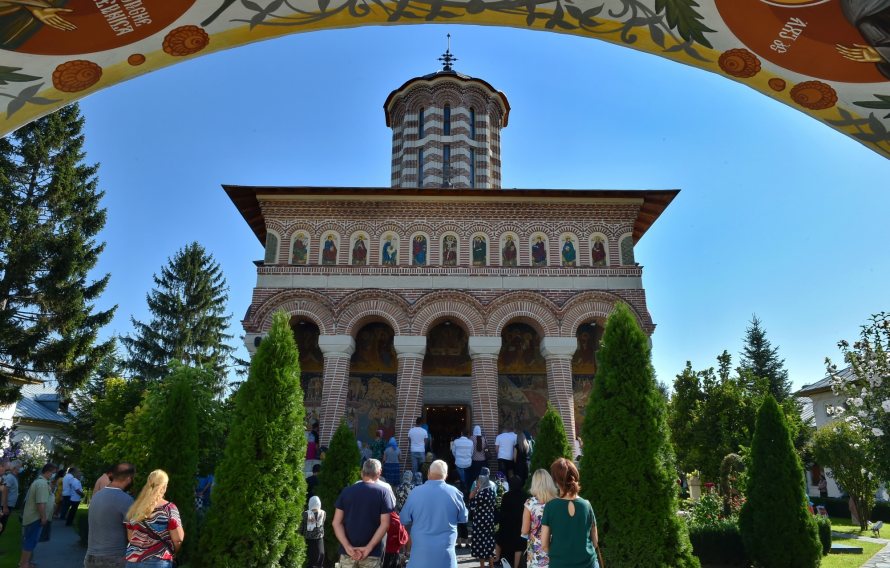
Patriarch Daniel also highlighted why the Orthodox Church does not separate the Cross from the Resurrection.
“Because after the Resurrection, Christ bears the marks of the cross on His side pierced with the spear, in His hands and feet.”
“Although He rose from the dead and His wounds healed, the traces of
the crucifixion remained. This means that His humble love shown on the
cross remains eternal in His risen body. Therefore, we sing Before Your
Cross we bow down in worship, O Master, and Your holy Resurrection we
glorify.”
The Samurcăşeşti Monastery was founded in 1808, being built by the
governor Constantin Samurcaş, on his estate in the village of
Ciorogârla, and is located at a distance of 15 km from Bucharest.

